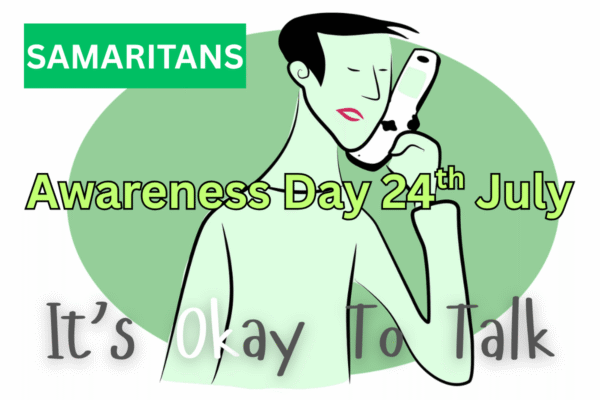Latest Posts

How to Make a New City Feel Like Home in 30 Days
Moving to a new city can feel a bit like stepping onto a moving bus – you’re grateful to have a seat, but you’re not totally sure where this route goes.
The good news? You don’t need years to feel settled. With a few smart micro-habits, simple routines, and local hacks, you can turn “Where am I?” into “This is my place” in about a month.
Here’s a friendly, no-fluff guide to help students make a new city feel like home in 30 days.
Week 1: Anchor Yourself with Micro-Habits
Your first week sets the tone. The goal isn’t to do everything – just to create small anchors that make each day feel a little more familiar.
Start with a five-minute morning reset. Open your curtains, make your bed, drink a glass of water, and jot down three tiny tasks for the day. This is less about productivity and more about psychological footing; you’re telling your brain, “We’ve got this.”
Next, choose a daily “place cue.” That’s one spot you intentionally visit each day to build a sense of routine – maybe a particular bench on campus, a coffee shop near your accommodation, or a corner of the library with good light. Go there, even if just for ten minutes. Over time, that spot becomes your personal mental shortcut to calm.
In the evenings, add a two-minute tidy. Set a timer and clear surfaces, rinse mugs, fold a throw blanket – whatever brings order quickly. Waking up to a neat room does more for your headspace than any productivity app.
Finally, adopt a mini movement ritual. A brisk 10–15 minute walk after lunch or dinner works wonders. Explore a different street each day; you’ll learn the layout organically while your body thanks you for the fresh air.
Week 2: Build Routines That Fit Your Life (Not Someone Else’s)
With the basics in place, it’s time to craft routines that feel natural. Start with your “power trio”: sleep, study, and social.
For sleep, aim for a consistent bedtime and wind-down sequence – dim lights, put your phone on night mode, and play the same calming playlist. Pair this with a simple “lights out rule” that’s realistic for your schedule. A stable sleep window helps you adapt to new surroundings faster and keeps your mood steady.
For study, create a rhythm you can rely on. Try a 45-minute focus block followed by a 10-minute break, repeated two or three times. Keep your tools identical each session – same notebook, same browser tabs, same table. Consistency beats intensity here. I
f you can, separate “deep work” locations (library or quiet zone) from “light admin” locations (café or common area). Your brain will learn which space equals which kind of thinking.
For social, don’t force big gestures. Start with micro-interactions: a “morning!” to the receptionist, a quick chat with the barista, a compliment on someone’s tote bag. These tiny moments create momentum and make you feel woven into the day-to-day fabric of the city.
Also, say yes to at least one casual invite this week – even if it’s just a society taster session or a low-stakes board-game night.
Week 3: Use Local Hacks to Feel Like a Regular
Now you’re ready to move from “newbie” to “local-ish.” Begin with transport. Learn the city’s shortcuts: which bus stop is quicker at rush hour, where the night service runs from, which cycling routes are safest, which streets have reliable e-scooter parking.
Screenshot timetables and save them in a dedicated “City” album on your phone. Knowing how to get around without thinking is a huge confidence boost.
Food is another fast track to belonging. Find three reliable “go-tos”: one budget supermarket for weekly basics, one independent café for a treat when you need a lift, and one tasty cheap-eat spot for late study sessions (bonus points for student discounts).
Visit each place twice this week. Familiar faces and familiar flavours turn a city into a neighbourhood.
For your wallet, set a Sunday money ritual. Spend five minutes reviewing last week’s spending, then decide on a realistic pocket budget for treats, coffees, and social plans. Use digital envelopes or a simple note in your phone.
The aim isn’t strictness – it’s awareness. When you know what you’re spending, you get to say “yes” more confidently.
Don’t forget second-hand gold. Charity shops, vintage markets, and community swap pages are perfect for adding personality to your room on a student budget. A framed print, a cosy lamp, or a quirky cushion instantly transforms a space from “rented box” to “my place.”
Week 4: Expand Your Circle and Claim Your Rhythm
By now, your micro-habits and routines are humming in the background. It’s time to stretch a little – socially and personally.
Pick one society to commit to for a month. Not five; one. Consistency matters more than variety. Show up weekly, learn some names, volunteer for a tiny task. You’ll be shocked at how quickly friendly faces become familiar.
Create a “local loop” for weekends: a morning walk route, a coffee stop, a browse around a market or bookshop, and a quick reset of your room when you get back. Repeat it for two Saturdays in a row. Rituals like these give your week a heartbeat and turn the city into your stomping ground.
Then, plan one mini adventure. That might be a museum with free entry, a film club screening, a riverside walk, or a live music night – something that isn’t strictly “student life,” so you connect with the broader city.
Take a few photos, but more importantly, take mental notes: the smell of fresh pastry, the busker on the corner, the street that catches the morning light. These textures are what “home” feels like.
Micro-Habits That Make a Big Difference
A city becomes yours through repetition and small wins. Here are a few micro-habits that punch above their weight:
Start a one-line-a-day journal. Note one thing you discovered, one person you spoke to, or one place you passed. It’s a tiny time capsule that shows how quickly you’re growing roots.
Use a “two birds” mindset. Combine tasks to embed exploration into your day: pick up groceries via a new route, listen to course readings while you walk to a scenic spot, or invite a coursemate to review notes in that café you’ve been wanting to try.
Adopt the “3-name” challenge each week. Learn and use the names of three people you encounter regularly – security staff, the librarian, the person who always arrives early to your seminar. Name-using builds community faster than any networking event.
Keep an “always pack” pouch in your bag. Lip balm, pen, charging cable, plasters, a foldable tote, and a cereal bar. Feeling prepared keeps anxiety low and spontaneity high.
Local Know-How: The Unsexy Stuff That Matters
It’s not glamorous, but sorting a few practical bits makes you feel established. Register with a local GP if you’re eligible, save emergency and taxi numbers, and pin 24-hour pharmacies on your map.
Learn where the campus lost-property desk lives, how to report a missed bin collection at your accommodation, and which laundrette machines are less busy. These small bits of knowledge reduce friction and increase your sense of control.
Weather-proof your routine too. Keep a compact umbrella and a lightweight layer by the door, and plan an indoor “rain route” (library → café → study nook) so bad weather doesn’t derail your day. Feeling resilient against the climate is surprisingly empowering.
Craft a Space You Want to Come Back To
Your room is your base camp. Aim for simple, sensory comfort: a soft throw, warm lighting, and one plant you can’t easily kill. Use scent as a memory anchor – fresh laundry, a citrus diffuser, or your favourite tea. When a space smells like “you,” your nervous system relaxes.
Create zones, even in a tiny room. A “work corner” (desk, lamp, laptop stand), a “chill corner” (cushion, blanket, headphones), and a “landing pad” by the door for keys and wallet.
Zones reduce decision fatigue and make your space more functional. And remember your two-minute tidy – future-you will always be grateful.
Social Confidence Without the Pressure
Not everyone arrives as the life of the party – and that’s okay. Focus on depth over breadth.
When you meet someone you click with, follow up within 48 hours: “Fancy a coffee after Tuesday’s lecture?” Suggest something specific and easy. If big nights out aren’t your thing, try low-key activities: study sessions, walks, board-game cafés, or volunteering. Shared tasks make conversation flow naturally.
If you’re feeling wobbly, name the feeling privately (“first-week jitters,” “Sunday scaries”) and then do one small, kind action – send a message, take a walk, brew a proper tea. Momentum beats perfection.
A 30-Day Snapshot You Can Steal
If you like a simple shape to follow, try this:
Days 1–7: Morning reset, daily place cue, evening two-minute tidy, 10–15 minute walk. Visit the library once and one local café twice.
Days 8–14: Fix your sleep and study rhythm. Attend one society taster and say yes to one casual invite. Try a new bus route or cycling path.
Days 15–21: Establish your Sunday money ritual. Choose your three regular food spots. Add one second-hand item to personalise your room.
Days 22–30: Commit to one society weekly for a month. Do your weekend “local loop.” Plan one mini adventure beyond campus.
The Mindset That Makes It All Work
The secret to feeling at home is repetition with curiosity. You don’t need to “discover yourself” in 30 days; you just need to stack small wins. Treat the city like a book you’re reading slowly – chapter by chapter, page by page. Some chapters will be exciting, others a bit functional, but together they add up to a story you’ll be proud of.
When in doubt, zoom in. What’s one tiny thing you can do today that future-you will thank you for? A message sent, a street explored, a shelf tidied, a name remembered. Do that, and watch how quickly the unfamiliar becomes yours.
Thirty days from now, you’ll know where to get a decent sandwich, which bus driver nods back, and the exact chair in the library that fits your posture like a glove. That’s home – not a grand declaration, but a set of small, repeated choices that make you feel steady where you stand.
Read More
Breast Cancer Awareness Month – Everything You Need to Know
Every October, you’ll notice a wave of pink ribbons appearing on social media, shopfronts, and even on sports kits.
That’s because October marks Breast Cancer Awareness Month – a global campaign dedicated to raising awareness about one of the most common cancers worldwide. But what’s it all about, why is it important, and how can you get involved?
Let’s break it down.
What is Breast Cancer Awareness Month?
Breast Cancer Awareness Month was first established in the 1980s and has since become one of the most recognised health campaigns in the world. The aim is simple: to raise awareness of breast cancer, promote the importance of early detection, and support ongoing research and treatment efforts.
The pink ribbon is the universal symbol of the movement. You’ll see it pinned on coats, lighting up landmarks, and woven into fundraisers. It’s more than just a colour choice – it’s a sign of solidarity with those affected and a reminder to keep the conversation going.
Why it Matters
Breast cancer is the most common cancer among women globally, and men can be affected too, though at much lower rates. In the United Kingdom alone, around 1 in 7 women will be diagnosed with breast cancer during their lifetime.
That might sound daunting, but the good news is that survival rates are improving, largely thanks to awareness campaigns and advances in research.
The key is early detection. Spotting symptoms early, such as changes in breast shape, lumps, or unusual discharge, can make treatment far more effective. Awareness month reminds everyone to check themselves regularly, get screenings where appropriate, and talk openly about symptoms that might otherwise go unnoticed.
What Students Should Know
If you’re a student, you might think breast cancer awareness doesn’t really apply to you – but it does. While breast cancer is more common in older women, younger people can still be affected.
Knowing the signs early and building the habit of regular self-checks is invaluable. On top of that, universities and student groups often use October as a chance to fundraise and spread awareness.
From charity runs to pink-themed socials, there are plenty of ways students can get involved, contribute, and make a difference. Plus, it’s a great way to build community spirit while supporting a cause that touches so many lives.
How to Get Involved
Raising awareness doesn’t have to mean climbing a mountain or running a marathon – though you certainly can if that’s your thing. Here are some simple but effective ways to play your part:
- Wear Pink with Purpose: Whether it’s a ribbon on your jacket, a pink hoodie, or a themed sports kit, wearing pink is an easy way to show support and spark conversations.
- Fundraising Events: Bake sales, sponsored walks, quiz nights, or even dyeing your hair pink – creativity is key. Every penny raised supports research, patient care, and educational campaigns.
- Social Media Power: Share posts, stories, or even personal messages about the importance of awareness. Platforms like Instagram and TikTok are powerful spaces for spreading health messages among younger audiences.
- Get Educated: Take a few minutes to read up on symptoms, screening, and support services. Knowing what to look out for means you’re better equipped to help yourself and others.
- Volunteer or Donate: Charities such as Breast Cancer Now, Coppafeel! and Cancer Research UK always welcome donations or volunteer support, whether that’s shaking buckets at events or helping with local campaigns.
Breaking the Stigma
One of the biggest impacts of Breast Cancer Awareness Month has been breaking down the stigma around talking about breast health.
In the past, conversations about cancer often felt taboo or uncomfortable. Today, the pink ribbon has helped make it easier to discuss symptoms, treatment, and emotional support.
This openness is especially vital for students and younger generations, where embarrassment or lack of knowledge might prevent someone from speaking up. Awareness campaigns encourage honest conversations and normalise the idea that it’s okay to ask questions or seek help.
A Global Effort with Local Impact
While Breast Cancer Awareness Month is international, the impact is very much felt locally. Universities, workplaces, and community groups run their own events, each adding to the bigger picture.
For example, a small bake sale on campus might raise £200, which could help fund counselling sessions for patients or contribute to research grants. The beauty of the campaign is that no effort is too small – everything counts.
Final Thoughts
Breast Cancer Awareness Month isn’t just about pink ribbons and fundraising (though those are important). It’s about saving lives through education, encouraging people to take their health seriously, and standing shoulder to shoulder with those affected by breast cancer.
For students and young people, it’s a chance to learn habits that could one day save lives – yours or someone else’s. It’s also a chance to rally together, make a positive impact, and prove that awareness really does make a difference.
So this October, don’t just notice the pink ribbons – join in. Whether you’re baking cupcakes, sharing a post, or checking yourself for the first time, you’re part of a movement that matters.
Read More
Wellbeing in Autumn: How to Beat the Post-Summer Blues at University
Autumn is a season of change. The leaves turn golden, the air gets cooler, and university campuses start buzzing with students settling back into lectures, deadlines, and social life.
But for many, the shift from long summer evenings to darker autumn nights can feel like a bit of a downer. It’s not uncommon to experience low mood, fatigue, or a lack of motivation as the seasons change – a phenomenon often called the “post-summer blues.”
If you’re a student juggling assignments, societies, and maybe even part-time work, this dip in mood can feel even more intense. But the good news? With a few practical steps, you can boost your wellbeing and make autumn one of your best seasons yet.
Understanding the Post-Summer Blues
The change in seasons doesn’t just affect the weather – it can also affect your body and mind.
Shorter days mean less sunlight, which can lower your levels of serotonin (a mood-boosting chemical) and disrupt your sleep cycle. That’s why many people feel more sluggish, less motivated, and sometimes even a bit down when autumn arrives.
For students, the combination of academic pressure, a new routine, and fewer daylight hours can easily pile up. Recognising what’s happening is the first step to doing something about it.
Lighten Up with Light Therapy
If you’re finding it harder to wake up in the mornings or feel energised throughout the day, light therapy might be a game-changer. Light therapy lamps mimic natural daylight and can help regulate your body clock, improve your mood, and even boost your concentration for those long study sessions.
You don’t need anything fancy to get started. A basic light therapy box used for 20–30 minutes in the morning can make a noticeable difference.
If that’s not an option, try to spend as much time as you can outdoors during daylight hours – even a 15-minute walk between lectures can do wonders.
Stay Active, Stay Positive
Exercise is one of the most effective ways to lift your mood, and autumn is a great season to keep moving. Whether it’s joining a sports society, hitting the campus gym, or simply going for a run through the crunchy leaves, staying active will help your body release endorphins (your natural feel-good hormones).
The key is to find something you actually enjoy. If you’re not into team sports, try yoga or a dance class. If the gym feels intimidating, download a fitness app and work out in your room. Even short bursts of activity can break up long study sessions and help keep your energy levels up.
Build Social Connections
The darker evenings can make it tempting to curl up in bed with Netflix, but isolation can make low moods worse. University is full of opportunities to connect with others – whether through societies, study groups, or just grabbing coffee with a flatmate.
If you’re feeling the blues, making plans (even small ones) can give you something to look forward to. Think of it as balancing cosy nights in with energising social time. Both are important for your wellbeing.
important for your wellbeing.
Focus on Sleep and Routine
Autumn’s darker mornings can throw your sleep schedule off track, but sticking to a routine makes a huge difference. Aim to wake up and go to bed around the same time each day, and try to get at least 7–8 hours of rest.
If you struggle with winding down, swap your phone scroll for something more calming like reading, journaling, or listening to a podcast. A consistent routine will help your body adapt to the seasonal shift and keep your mind clear for studies.
Nourish Your Body and Mind
What you eat can have a big impact on your mood and energy levels. Comfort food is tempting in autumn, but balance it with nourishing meals that include plenty of fruit, vegetables, and protein.
Omega-3 rich foods (like salmon or walnuts) and vitamin D supplements can also help boost your mood when sunlight is scarce.
Don’t forget your mental nourishment, too. Taking breaks, setting realistic goals, and practicing mindfulness – whether through meditation apps or simply pausing for deep breaths – can all help you feel more balanced.
Know When to Ask for Help
Sometimes the post-summer blues can feel heavier than expected, and that’s okay. If your mood is consistently low or you’re finding it hard to cope, it’s important to reach out for support.
Most universities offer wellbeing services, counselling, or peer support groups. Talking to a trusted friend, tutor, or professional can make a huge difference.
Remember, you’re not alone – many students feel this way, and seeking help is a sign of strength, not weakness.
Embracing Autumn
Instead of seeing autumn as the gloomy end to summer, think of it as a chance to reset. It’s the season of cosy jumpers, hot drinks, and new beginnings on campus. By looking after your wellbeing – from light exposure and exercise to sleep and social connection – you can turn the post-summer blues into an opportunity for growth.
University life can be intense, but autumn is also full of colour, energy, and change. With the right mindset and habits, you can embrace the season and make it one to remember.
Read More
Stand Up To Cancer Day: Everything You Need to Know to Get Involved
Every September, people across the United Kingdom come together to recognise an important cause: Stand Up To Cancer Day.
Taking place this year on 12th September, the day is far more than just a date in the diary. It represents a movement that unites schools, universities, workplaces and communities in the fight against cancer.
Whether you are a student, a young professional or someone who has been touched by cancer personally, it is an opportunity to make a real difference.
What Exactly Is Stand Up To Cancer Day?
Stand Up To Cancer Day forms part of a larger campaign that aims to accelerate life-saving cancer research. Instead of being a one-off event, it acts as a rallying point, encouraging people to come together and take action.
The central mission is to raise money for research projects that can lead to better treatments and, crucially, save lives.
Over the years, the campaign has shown how small efforts – whether that’s through creative events, sponsored challenges or simple acts of generosity – can contribute to extraordinary scientific progress.
Why Awareness Matters
Cancer affects more people than many realise. In fact, one in two people in the UK will be diagnosed with cancer during their lifetime, a statistic that underlines the importance of understanding the disease.
Awareness is about more than recognising symptoms. It is also about breaking down stigma, supporting early detection and ensuring that resources for research remain a priority.
For students and young adults, it can sometimes feel like cancer is an issue for later in life, but knowledge and awareness now can help you to look after yourself and the people around you in the years to come.
Finding Ways to Get Involved
One of the most powerful aspects of Stand Up To Cancer Day is that anyone can take part, no matter their circumstances. People often find their own creative ways to join in, whether that is through school-wide themed days, community gatherings or personal challenges.
For students, simply sharing stories and information on social media can spread awareness across hundreds of people within minutes. For others, committing to personal challenges – such as sporting activities or endurance tests – often provides both motivation and a chance to encourage sponsorship from friends and family.
Even small actions, like donating a few pounds or encouraging peers to contribute, can combine to make a significant impact.
Supporting Someone Living with Cancer
Stand Up To Cancer Day is not only about fundraising, but also about human connection. If you know someone who is living with cancer, your presence and support can be incredibly meaningful.
Something as simple as spending time together, offering to help with everyday tasks or being a consistent source of encouragement can provide comfort during a challenging period.
It is equally important to acknowledge that supporting someone through illness can be emotionally demanding. Recognising when you need support yourself and making use of resources such as Macmillan Cancer Support or Cancer Research UK can help you cope and maintain your own wellbeing.
Taking Care of Your Own Concerns
Health worries can feel overwhelming, and it is normal to feel anxious if you notice something unusual in your body or if cancer runs in your family. The best step you can take is to speak to a doctor early on.
Often symptoms turn out to be harmless, but if something does require treatment, catching it early makes a huge difference. Beyond the physical aspects, it is important to remember that mental health support is also available.
Many schools, universities and workplaces have counselling services or wellbeing teams who can provide reassurance and guidance if your worries start to feel too heavy.
Why Fundraising Really Counts
When it comes to fundraising, it is easy to feel that individual efforts are too small to matter. Yet the reality is that each contribution forms part of a much larger picture.
Funds raised through Stand Up To Cancer have already supported over fifty clinical trials, giving thousands of patients access to new treatments and the hope of better outcomes.
Every conversation, every pound and every action helps to push scientific research forward, enabling discoveries that could change countless lives in the future.
Final Thoughts
Stand Up To Cancer Day on 12th September is about more than wearing an orange ribbon or making a donation. It is a collective stand against one of the most pressing health challenges of our time.
From students spreading awareness on social media, to families hosting events in their local communities, to individuals quietly supporting loved ones, everyone has a role to play. Together, these actions send a powerful message: cancer may affect many of us, but it does not define us.
This September, the invitation is clear. Whether you are raising funds, offering emotional support or simply sharing information, you are contributing to a much bigger effort. Stand Up To Cancer Day is your chance to be part of that movement – to stand together, to act with compassion and to help create a future where cancer is no longer the defining battle it is today.
Read More
World Suicide Prevention Day: How to Raise Awareness and Support the Cause
Every year on 10th September, people across the globe pause to acknowledge World Suicide Prevention Day.
It is a moment dedicated not only to remembrance but also to action, encouraging conversations about a subject that is often avoided. Suicide affects millions of lives, leaving behind families, friends, and communities who are forever changed.
By giving it attention on this day, we are reminded of the importance of openness, compassion, and the role we can all play in supporting those around us.
Understanding World Suicide Prevention Day
World Suicide Prevention Day was first introduced in 2003 by the International Association for Suicide Prevention (IASP) in partnership with the World Health Organisation (WHO).
It was created to shine a spotlight on the alarming reality of suicide as a public health crisis while also offering hope that change is possible. The day is marked with events worldwide, from vigils and talks to awareness campaigns and community gatherings.
Each year carries a theme that underlines the shared mission of reducing stigma and encouraging people to reach out for help. At its heart, the day is about people – individual lives, struggles, and the opportunity for communities to come together in solidarity.
Why Suicide Prevention Matters
Suicide is tragically one of the leading causes of death across the world. The World Health Organisation estimates that more than 700,000 people die by suicide every year, equating to one life lost every 40 seconds.
For young people in particular, it remains a significant risk, and the ripple effects are devastating. Families, schools, and workplaces all feel the impact of such a loss.
The crucial message of World Suicide Prevention Day is that suicide can often be prevented. Many people who struggle with suicidal thoughts do not want their life to end – they simply want their pain to stop.
When support, understanding, and appropriate resources are made accessible, the outcome can be very different. This is why awareness matters: it challenges stigma, opens up conversations, and reminds us that seeking help is a sign of courage rather than weakness.
Raising Awareness in Everyday Life
Marking World Suicide Prevention Day does not always require large-scale initiatives. Often, small but genuine acts of awareness can have a powerful effect.
Talking openly about mental health is one way of breaking down the silence that surrounds it. When people feel safe to share their experiences, it helps to normalise these conversations and reassures others that they are not alone.
Awareness can also be spread through personal platforms, such as sharing information or helplines online. Social media can be a positive tool when used to promote messages of hope and resources for those in need.
Communities and universities often hold events or talks on 10th September, and taking part demonstrates solidarity with those affected by suicide. Even wearing the orange and yellow suicide prevention ribbon can spark a conversation and remind someone that support is available.
These small gestures are powerful because they all contribute to creating a culture where mental wellbeing is prioritised.
Supporting Friends and Loved Ones
One of the most valuable contributions an individual can make is to be present for those who are struggling.
It is not always easy to know what to say when someone is experiencing poor mental health, but listening without judgement is often more impactful than giving advice. Checking in regularly, even with something as simple as asking how they are doing, can reduce feelings of isolation.
Practical gestures – whether it is sitting down over a coffee, going for a walk together, or reminding someone that they matter – help to provide reassurance. Encouraging professional support is also important, but it is the sense of connection and empathy that often makes the first difference.
While none of us can fix another person’s problems completely, we can all create an environment where people feel less alone in their struggles.
Seeking Help When You Need It
For those experiencing feelings of hopelessness or suicidal thoughts, knowing where to turn is critical.
Speaking up may feel daunting, but it is a crucial step toward recovery. Support is available around the clock, with organisations such as Samaritans, who can be reached for free at 116 123, offering confidential help day or night.
Mind provides information and resources for anyone experiencing a mental health challenge, while Papyrus HOPELINEUK (0800 068 4141) focuses specifically on young people who may be at risk.
In situations of immediate danger, it is essential to call 999. Even if the words feel difficult to say, reaching out can be life-saving. Taking that first step – whether through a helpline, a GP, or a trusted friend – is not a weakness, but a strength. It signals that life matters and that there is hope for the future.
Why Awareness Days Make a Difference
World Suicide Prevention Day exists to remind us that mental health is not something to be hidden or ignored.
It gives communities the chance to reflect on how they can better support one another, while also reinforcing the message that every life is valuable. It prompts important conversations, encourages compassion, and challenges the stigma that continues to surround suicide.
Awareness days like this may not provide all the solutions, but they do create momentum for change. They remind us to keep mental health on the agenda every day of the year and to take small but meaningful actions that contribute to a more understanding and supportive world.
Final Thoughts
On 10th September, recognising World Suicide Prevention Day is not about grand gestures but about connection, awareness, and compassion. Each conversation, each act of kindness, and each effort to promote support services plays a role in reducing the silence that surrounds suicide.
By raising awareness and supporting one another, we take steps toward a future where fewer lives are lost and more people find the hope and help they deserve.
Read More
World Sexual Health Day – Everything Students Need to Know
Every year on 4th September, people across the globe recognise World Sexual Health Day.
It’s a day designed to break the stigma around sexual health, promote healthy relationships, and encourage people of all ages – especially young people and students – to take ownership of their wellbeing.
But what does it actually mean, and why should it matter to you? Let’s dive in.
What Is World Sexual Health Day?
World Sexual Health Day was first launched in 2010 by the World Association for Sexual Health (WAS). Since then, it has grown into a worldwide campaign, observed in more than 40 countries.
Each year focuses on a different theme, but the overall message remains the same: sexual health is a vital part of your overall wellbeing.
For many, sexual health still feels like a “taboo” topic. People are often embarrassed to ask questions, seek advice, or have open conversations about it. World Sexual Health Day is about changing that.
It creates a platform for schools, universities, healthcare organisations, and communities to encourage open dialogue, raise awareness, and provide resources.
Why Is Sexual Health So Important?
When people think of “sexual health,” they often assume it’s just about avoiding sexually transmitted infections (STIs).
While that’s certainly one part of it, sexual health is much broader. It’s about feeling safe, confident, and respected in your relationships and having access to the right information and services.
For students and young adults, this is especially important. University life often brings independence, new relationships, and, sometimes, new risks. Whether it’s navigating consent, understanding contraception, or simply knowing where to go for support, having a good grasp of sexual health helps you make informed choices.
Good sexual health also contributes to mental wellbeing. Feeling anxious, uninformed, or unsafe in your intimate life can affect everything from your confidence to your academic performance.
On the flip side, having clarity and confidence around sexual health can help you feel more secure, supported, and in control.
Why Students Should Pay Extra Attention
Students often find themselves in environments where peer pressure, experimentation, and social activities can heighten the importance of sexual health.
Nights out, house parties, or casual relationships can sometimes make conversations about consent, contraception, and safety feel awkward – but they’re absolutely crucial.
For young people, being informed means being empowered. Knowing the difference between fact and myth (spoiler: you can’t “tell” if someone has an STI just by looking at them) can save you from unnecessary stress later.
It’s also about recognising that your choices are valid – whether you’re sexually active or not, your wellbeing matters.
How You Can Get Involved in World Sexual Health Day
Getting involved doesn’t mean standing on a soapbox or sharing more than you’re comfortable with. There are plenty of ways students can participate in World Sexual Health Day while also making a real difference.
- Attend events or workshops: Many universities and student unions host talks, Q&A sessions, or campaigns on or around 4th September. These can be a great chance to learn more in a safe, supportive environment.
- Share resources online: A simple repost on Instagram or a conversation on TikTok can help spread awareness. Your voice might encourage someone else to seek advice or support.
- Start conversations: Talking openly with friends or flatmates about sexual health helps normalise it. It doesn’t need to be awkward – it can be as simple as reminding someone to get tested after a new relationship.
- Check in on your own wellbeing: Use the day as a reminder to book a sexual health check-up, update your contraception, or read up on consent. Looking after yourself is just as much a part of the day as helping others.
Busting the Stigma
One of the key goals of World Sexual Health Day is tackling stigma. Too often, people avoid talking about sexual health because they fear being judged. This silence can lead to misinformation, risky behaviour, and a lack of support when it’s most needed.
For students, it’s especially important to challenge these taboos. Whether it’s being honest about going for an STI test or encouraging open discussions in relationships, the more these conversations happen, the less awkward they become.
Remember, taking care of your sexual health is no different to getting your eyes tested or going to the dentist – it’s just another part of looking after yourself.
The Bigger Picture
While the focus is often on young people, sexual health matters at every age. From teenagers to people in their 60s and beyond, everyone has the right to safe, informed, and respectful relationships.
But for students, the habits and attitudes you form now will shape your wellbeing for years to come.
By engaging with World Sexual Health Day, you’re not only looking after yourself but also contributing to a culture where everyone feels more comfortable and confident talking about these issues.
Remember: that ripple effect can be powerful – helping friends, classmates, and even future partners.
Final Thoughts
World Sexual Health Day on 4th September is more than just a date in the calendar – it’s a reminder to look after an often-overlooked part of your wellbeing.
For students, it’s a chance to access the right information, challenge stigma, and start building a healthy, confident approach to relationships.
So, whether you attend a workshop, share a post, or simply take a moment to check in with yourself, remember: sexual health is about more than avoiding risks – it’s about respect, confidence, and wellbeing.
And that’s something worth celebrating, not just on World Sexual Health Day, but every day.
Read More
Top Tips for Students: Things to Do on the Summer Bank Holiday
The Summer Bank Holiday is just around the corner – Monday 25th August – and for students, it’s a rare chance to enjoy an extra day of freedom before lectures, deadlines, and timetables take over again.
Whether you’re staying put in your uni town, heading home, or planning something a bit different, this is your chance to make the most of a long weekend without blowing your student budget.
Here’s how you can fill it with fun, relaxation, and maybe even a bit of adventure.
Get Outdoors and Explore Your Local Area
August in the United Kingdom can be hit or miss with the weather, but if the sun’s out, it’s the perfect excuse to ditch the library and get some fresh air. You don’t have to spend big – in fact, some of the best outdoor activities are free or cost next to nothing.
If you’re near a park, canal path, or countryside, grab some mates, pack a picnic, and make a day of it. Bring along snacks from home or raid your local supermarket’s yellow-sticker section for cheap treats.
For something more active, hire bikes or take a walking route you’ve never tried before. Many towns have hidden trails or riverside paths that feel like a mini-escape from city life. If you’re in a coastal area or within a short train ride of one, the beach is a budget-friendly classic. Just remember to check train times early – the Bank Holiday can get busy.
Plan a Mini Weekend Break
Think weekend breaks are only for people with big paycheques? Think again. With a bit of smart planning, you can squeeze in a low-cost getaway.
Look at budget coach operators like Megabus or National Express for last-minute deals to nearby cities. You might be able to get to somewhere new for under £10 each way if you book in advance.
For accommodation, try hostels, university summer halls (which are often let out cheap during holidays), or even group Airbnbs split between friends.
If you’re after scenery rather than nightlife, consider camping. Borrow a tent, grab a few friends, and head to a campsite – it’s often far cheaper than a hotel and makes for a proper adventure.
Make It a Social Weekend
Bank Holidays are prime time for catching up with friends – especially if you haven’t seen each other since exams. Instead of heading somewhere pricey, why not host a bring-and-share BBQ or potluck dinner? Everyone brings one dish or drink, keeping costs low but variety high.
You could also try a games night with board games, card decks, or even a group video game tournament. Add in some snacks and it’s a night that’s both fun and budget-friendly.
If you’re more of a morning person, a group brunch at home can be just as sociable. Whip up pancakes, scrambled eggs, and fruit – cheaper and cosier than eating out.
Enjoy Some ‘Me Time’
Sometimes the best way to spend a Bank Holiday is to slow down, especially if you’ve had a hectic summer job or placement. Use the day to recharge and focus on what makes you feel good.
This could be something simple like having a lie-in, reading a book you’ve been putting off, or binge-watching a series guilt-free. You could head to your local leisure centre for a swim, try a yoga class, or take a sketchpad to a café and enjoy a peaceful couple of hours.
Self-care doesn’t have to cost much – it’s more about giving yourself permission to relax.
Check Out Local Events and Festivals
Many towns and cities put on free or cheap events over the Summer Bank Holiday. This could be live music in a park, a food festival, outdoor cinema screenings, or local fairs.
Check your local council or community Facebook pages to see what’s happening near you. Even if you’re not in a big city, nearby towns often host quirky events – from vintage markets to street performances.
If you’re a student in a new city, this is also a great way to discover hidden venues or neighbourhoods you haven’t explored yet.
Take Advantage of Student Discounts
Wherever you decide to go, don’t forget your student card. Lots of attractions, museums, galleries, and even restaurants offer student prices – sometimes up to 50% off.
If you’re in London or heading there for the weekend, you can get into many museums and galleries for free, and often discounted theatre tickets on the day. Apps like UNiDAYS, Student Beans, or TOTUM can also help you score cheaper travel, meals, and activities.
Mix Fun with Productivity
It might sound boring to think about studying over a Bank Holiday, but using part of the day to organise your life can make the rest of the term easier. This could be as simple as sorting out your timetable, planning meals for the week, or getting your student budget spreadsheet in shape.
If you’ve been meaning to update your CV or portfolio, set aside a couple of hours to get it done – then reward yourself with something fun in the evening. You’ll feel more relaxed knowing you’ve ticked off some to-dos before term gets busy.
Final Word: Make It Yours
The beauty of the Summer Bank Holiday is that there’s no right or wrong way to spend it. Whether you’re packing a bag for a mini-break, heading to a local event, or just catching up on rest, the key is to do something that leaves you feeling good.
You don’t need to spend a fortune to have a memorable weekend – a bit of planning, a few friends (or a good book), and a Bank Holiday mindset are all you need.
Come Tuesday morning, you’ll be glad you made the most of that extra day.
Read More
It’s Okay to Talk: Shining a Light on Samaritans Awareness Day
Every year on 24th July, Samaritans Awareness Day rolls around with one clear message: “It’s okay to talk.”
Organised by the Samaritans charity, this day is all about reminding people – especially young adults and students – that you don’t have to go through tough times alone.
It’s a chance to spotlight the importance of mental health, encourage open conversations, and raise awareness of the free, confidential help that’s always available through the Samaritans’ 24/7 helpline.
The date – 24/7- is no coincidence either. It’s a nod to the fact that their volunteers are there every hour of every day, ready to listen.
Why Does This Day Matter?
Let’s be real – life can get overwhelming. Whether you’re juggling deadlines, dealing with relationship pressures, or just feeling off and unsure why, it’s easy to bottle things up.
But Samaritans Awareness Day is about flipping that script. It’s about creating a culture where talking about mental health is as normal as chatting about your favourite show or complaining about the weather.
For students in particular, the pressures of uni life or college can hit hard – especially when you’re away from home or navigating new environments. That’s why this day is so vital. It’s a reminder that help is there, and talking to someone – whether it’s a friend, a tutor, or a volunteer – can genuinely make a difference.
What Do Samaritans Actually Do?
The Samaritans are a United Kingdom charity made up of trained volunteers who provide emotional support to anyone in distress. You don’t have to be suicidal. You don’t even need to know exactly what’s wrong. If you’re struggling, they’re there to listen, not judge.
You can reach out any time, day or night, by calling free from any phone, emailing, or visiting one of their local branches for a chat. Everything is kept confidential, and you’re never pressured to say anything you don’t want to.
How Can Students Get Involved?
Even if you’re feeling fine yourself, there are loads of ways to support Samaritans Awareness Day and help those who might be struggling in silence.
1. Start Conversations
Check in on your mates. You don’t need to be a therapist – just being there and asking, “How are you really doing?” can open up a powerful dialogue. Sometimes, knowing someone cares is all it takes to feel less alone.
2. Share on Social Media
Use your platforms to spread the message. On 24th July, Samaritans encourage people to wear green and share posts under the hashtag #TalkToUs. Posting a simple message like “It’s okay to talk” might seem small – but you never know who might need to hear it.
3. Join a Fundraiser or Event
Many unis and colleges host wellbeing activities or charity events around the date. From bake sales to walks or awareness stalls, getting involved is a great way to meet new people and support a good cause.
4. Volunteer or Fundraise
If you’re passionate about mental health and want to give back, consider volunteering or fundraising for Samaritans. While volunteering as a listener takes training, there are also opportunities to help with events, admin, or spreading awareness on campus.
It’s Okay Not to Be Okay
Let’s normalise the reality that everyone struggles sometimes. Mental health doesn’t look the same for everyone – it’s not always dramatic breakdowns or visible signs. Often, it’s the quiet battles: feeling numb, overthinking everything, or just not feeling like yourself.
If you’re going through it, please know this: there’s no shame in reaching out. The bravest thing you can do is talk – and the Samaritans are always there to listen, no matter what you’re facing.
And if you’re doing okay right now, that’s great. But keep an eye out for those who might not be. A kind word, a quick message, or just being present can make a bigger difference than you might think.
Final Thoughts
Samaritans Awareness Day on 24th July isn’t just another date on the calendar. It’s a powerful reminder that mental health matters, and that no one has to suffer in silence.
Whether you choose to speak up, check in, raise awareness or simply wear something green – it all counts. Every little action helps create a world where talking about mental health feels natural, not awkward.
So this year, let’s be there for each other. Let’s make space for the real stuff. Because at the end of the day, it’s okay to talk. And no matter how heavy life might feel – you’re never alone.
Read More
National Cervical Screening Awareness Week: Why It Matters for Students
National Cervical Screening Awareness Week is a vital campaign that runs every June to raise awareness about cervical cancer and the importance of early prevention.
While the subject might seem distant or uncomfortable for some – especially among younger women and students – it’s a conversation worth having. Understanding what cervical screening is, why it’s done, and how to get involved in spreading awareness can genuinely save lives.
Cervical screening, sometimes referred to as a smear test, is a simple and routine medical check-up offered to women and people with a cervix, generally between the ages of 25 and 64 in the United Kingdom.
Contrary to popular belief, this isn’t a test for cancer itself. Instead, it’s designed to detect certain high-risk types of human papillomavirus (HPV), which can sometimes lead to changes in the cells of the cervix.
If these changes are picked up early, they can be monitored or treated long before they develop into cervical cancer. The screening is quick, usually lasting just a few minutes, and can be one of the most important health checks a person has.
Why Is Cervical Screening So Important?
Despite its life-saving potential, attendance rates for cervical screening remain lower than ideal – particularly among women in their 20s. Busy schedules, nervousness, a lack of awareness, and even embarrassment often get in the way.
Yet cervical screening is responsible for preventing thousands of cases of cervical cancer each year. If every eligible person took up their invitation, the number of deaths from cervical cancer could be reduced by up to 83%, according to health experts.
For students, who may have recently moved to a new city and registered with a different GP, this is a timely reminder to keep on top of health admin and ensure their NHS details are up to date.
Taking a few minutes to register with a local GP can make all the difference when that screening invitation arrives.
What Happens During a Cervical Screening?
It’s understandable to feel anxious if you don’t know what to expect.
During the appointment, you’ll be asked to undress from the waist down and lie back on an examination bed. A nurse or doctor will gently insert a device called a speculum to open the vagina slightly, then use a small, soft brush to collect a few cells from the cervix.
While it can feel a bit uncomfortable or awkward, it’s usually over in under five minutes. The collected sample is then sent to a lab to be tested for high-risk HPV types.
If the test comes back clear, you usually won’t need another screening for several years. If HPV is found, further tests may be carried out, but it doesn’t automatically mean anything is wrong – just that you’ll be monitored more closely.
The Student Perspective: Why Now Is the Time to Learn
For those who aren’t yet 25, this awareness week is still relevant. This is the perfect age to start learning about cervical health and opening up conversations with friends, peers, and family.
It’s also a good time to understand the role of the HPV vaccine, which many people now receive during school. While the vaccine offers strong protection against the most dangerous types of HPV, it doesn’t cover all strains, so attending regular screenings is still crucial once you’re eligible.
University can be a period of significant change, and it’s easy to overlook health check-ups. But being proactive now means you’ll be confident and informed when your first invite comes through the post.
How Universities and Students Can Get Involved
Universities and student communities can play a big role in raising awareness and encouraging open dialogue.
From organising information sessions with local health professionals to creating social media campaigns that break down the stigma, there are plenty of ways to make a difference.
Student unions, wellbeing societies, and women’s health groups can lead on-campus initiatives that empower students with knowledge and confidence around cervical screening. Even something as simple as talking to friends about the test or reminding someone to book an appointment can be impactful.
Creating safe spaces where students can ask questions, share experiences, and support each other goes a long way in normalising these important conversations.
Overcoming the Stigma and Talking Openly
One of the major barriers to screening is the social stigma attached to intimate health. Feelings of embarrassment or fear of judgement often stop people from attending appointments.
But healthcare professionals are there to help – not to judge – and they understand that the process can feel daunting.
Making it part of everyday conversation, especially in diverse student groups, helps break down these barriers. The more we talk about cervical screening, the more comfortable and empowered we become to prioritise our health without shame or hesitation.
Final Thoughts: Taking Control of Your Health
National Cervical Screening Awareness Week is ultimately about prevention, empowerment and education.
It’s about encouraging people to take their health seriously and reassuring them that help is available. Whether you’re already eligible for screening or just beginning to learn about it, now is the time to engage with the topic and look out for others, too.
Taking five minutes for a screening could quite literally be a life-saver. So let’s use this week not just to raise awareness – but to spark honest, supportive conversations and normalise looking after our health.
Read More